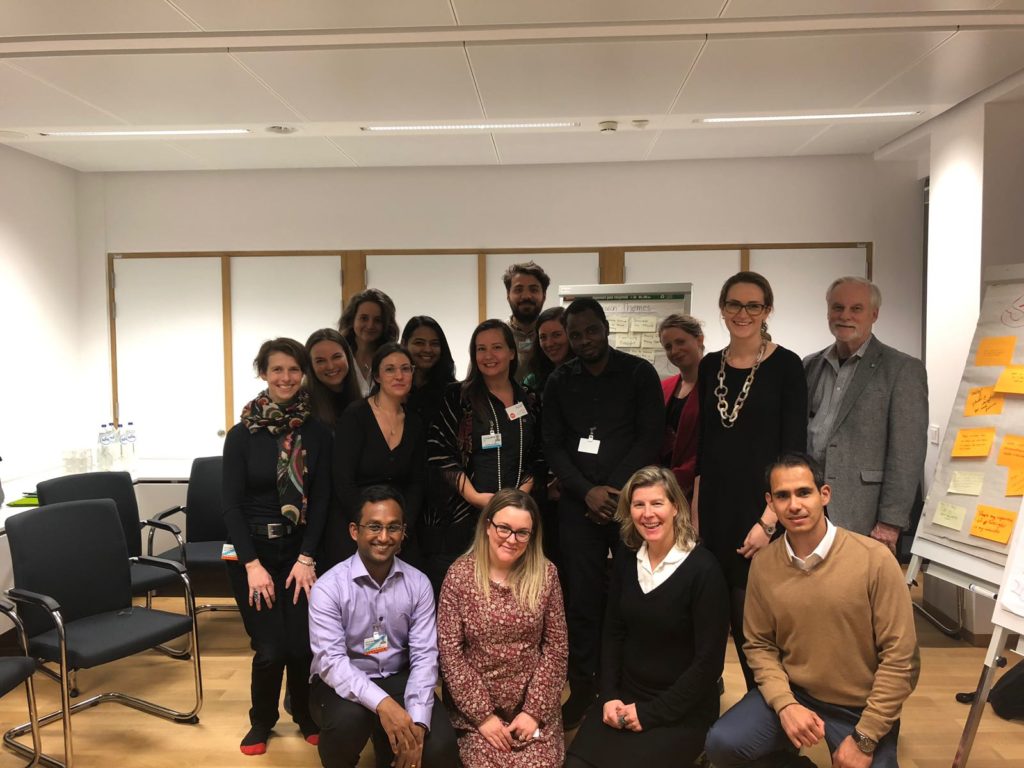A bad week to be a Brit in Brussels: foresight and whether we could have predicted Brexit
6/12/18

Last week, I went to Brussels as part of the Next Generation Foresight Practitioners (NGFP) network, a group of under 35s who are leading their communities in planning and shaping the future. I was lucky to be named the Europe Special Awardee after entering the NGFP competition earlier this year.
The winner, Pupul Bisht, is from India and will develop a novel, non-Western approach to foresight inspired by folk storytelling traditions. The runner up, Bunmi Ajilore, is from Nigeria and will be developing a futures lab to bring participatory foresight approaches to young professionals across Africa and support them to shape their future. The other awardees are from Colombia, Turkey, Poland, Singapore, Poland, the Netherlands, USA, Mexico and Australia and we’re hoping to build a global network to develop and showcase innovative approaches to futures and foresight work. For more information on the awardees see here.
We spent two days at the ‘Global trends to 2030: Shaping the future in a fast-changing world’ conference. There was an array of speakers about topics ranging from the future of liberal democracy, to the geopolitics of artificial intelligence, to the collective action needed to tackle climate change. Maybe, as one of the many British people who is devastated at the idea of the leaving the EU in a matter of months, I was hyper-sensitive to the word ‘Brexit’ but it seemed to be mentioned in every presentation I saw and in every conversation I had.
This led me to think about whether a foresight approach could have ever ‘predicted’ Brexit and therefore perhaps enabled the British people to take a more informed decision, perhaps allowing the UK and the EU to be more prepared for a leave vote. Foresight is not about forecasting exactly what ‘will’ happen but is about applying a range of techniques to understand what ‘could’ happen and creating the space to think about policy options in relation to these possibilities.
There have been signals for years that politics in the UK, as we know it, is changing. The fragmentation of traditional political parties and the increased likelihood of people not voting for mainstream parties are two key signals. If these signals had been mapped against information about how disillusioned and disconnected the general public felt after almost a decade of austerity, and against information about rising concerns about immigration, might we have concluded that a referendum on Brexit could tip in an unexpected direction? And would this have changed anything?
Of course, now we’ll never know but it’s clear that the UK has a lot to learn from other countries that have been using foresight for decades. With our Well-being of Future Generations legislation, it was particularly clear to me that we in Wales should be looking to learn from and emulate good practice elsewhere. Two speakers at the conference made a particular impression on me.
Firstly, Pei Shan Lim, who is the Head of the Centre for Strategic Futures in Singapore, outlined the approach that has been taken since the late 1980s. The centre operates like a think-tank within the Singapore government, which she described as “having the power to influence internally but also being able to extensively leverage external networks.” Singapore and Wales have some things in common – Singapore has a population of 4 million, Wales’ population is 3 million. There are also important differences: political short-termism is a challenge for us in Wales, but a key factor of the political leadership for foresight in Singapore is that the ruling party has been in power since 1959 – this was described to me as “the politicians aren’t worried about thinking long term because they are so sure they will be there for the long term.”
More information on Singapore’s approach can be found here. Secondly, there was Antonella Mei-Pochtler, who is Special Adviser to the Austrian Chancellor and leader of the newly-established strategy unit, ThinkAustria. As in Singapore, her unit operates like a think-tank and has the direct support of the Chancellor. She spoke of the importance of delivering evidence and communicating about foresight in the right way saying “good evidence is not a ticket to conviction – more is needed to convince decision makers”
More about Austria’s approach to foresight can be found here.
To me, these two examples suggest that, whilst we have legislation about futures thinking in Wales, we are lagging behind many other places in terms of how we use futures and foresight techniques. I hope to be a part of improving this through my involvement with the Next Generation Foresight Practitioners network, sharing ideas and inspiring change.
Cathy.Madge@futuregenerations.wales
@cathy_madge